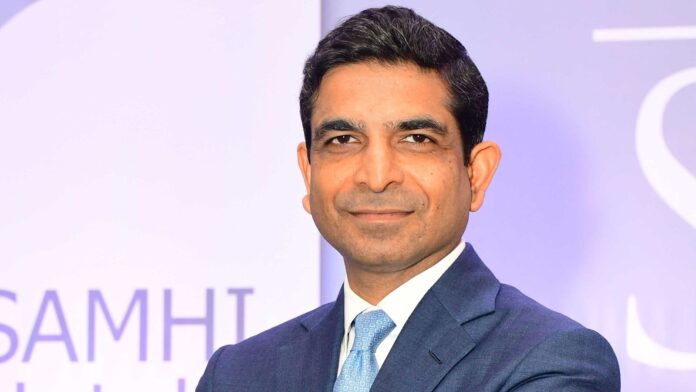The property will metamorphose into a luxury hotel and will be launched by FY27. Ashish Jakhanwala, chairman, managing director and CEO of the Gurugram-based hospitality company, claimed that this will be the first-ever initiative of converting an office building into a hotel in the country.
“No company has done office building conversion to hotel before in India. This shows that we don’t always need to rely on converting existing hotels into newer ones. It also creates incremental growth opportunities for us. We think we’ll be able to secure two or three more such office conversions to hotels on long leases, where very little capital needs to be put up front. It is a much more efficient way to invest in and own a hotel. This has been done before in the US, and it has also been done extensively in China,” he told Mint.
The company has 35 hotels that it owns and leases, including three under development, in 13 cities in India. Eight of its hotels are in the upper-upscale or five-star category, running under brands like Westin, Sheraton, and Hyatt Regency, while a majority of the portfolio is in the upscale segment, under the Fairfield by Marriott and Four Points by Sheraton brands. The remaining are in the mid-scale segment, running primarily as Holiday Inn Express hotels.
Jakhanwala said that over the next five years, the hospitality industry is expected to witness significant development. Luxury and leisure hotels are expected to perform exceptionally well in India, while core business hotels in major cities are also likely to thrive due to a growing demand for rooms that will outstrip the incoming supply.
Other segments, however, could see less predictable trends. “The combination of large cities and business hotels is seen as a strong growth story. Rising disposable incomes in India are expected to drive these trends. Weekday occupancies for city business hotels in our portfolio, for instance, is already in the range of 75%, and as Indians spend more on experiences such as concerts and events in other cities and with the rise in urban tourism, weekend occupancies are also expected to improve. In tier-2 and 3 cities, while opportunities exist, faster hotel supply growth compared to the demand for rooms may become challenging,” he said.
Samhi went public a little over a year ago in September 2023 and raised ₹1,370 crore. It primarily used the proceeds to retire a large part of its debt of about ₹2,400 crore, including shareholder debt.
Stock of the company closed 1.2% higher at ₹199.75 on the BSE on Monday.
Last year, Samhi acquired 9 hotels from Kuwait’s Asiya Capital Investments Company that also had about ₹300 crore of debt. The company used ₹1,000 crore to retire its debt which now stands at around ₹1,900 crore.
“Since September of last year, we have made sure that we’ve created a very healthy growth pipeline, which gives us non-same store growth or incremental growth from new hotels for the next 3-4 years as well. The ACIC portfolio will take two years to integrate into SAMHI,” Jakhanwala said. “As we integrate these hotels into our portfolio, the upside will be quite strong. Within this portfolio, we had identified two hotels, one in Pune and one in Jaipur, which will be rebranded. For these, we have signed contracts with Marriott to convert them from Four Points by Sheraton to Courtyard by Marriott and one under the Tribute Portfolio by Marriott, respectively,” he said.
Adding new rooms to existing hotels
The company has also identified various opportunities to increase inventory in its existing portfolio like adding rooms in Sheraton Hyderabad, Hyatt Regency Pune, and Holiday Inn Express in Bengaluru, Whitefield.
This fiscal year, the company will open its first hotel in Kolkata, under the Holiday Inn Express brand. It has also launched another Holiday Inn Express in Greater Noida. In October, it acquired a 142-room, 4-star hotel in Bengaluru’s Whitefield area for ₹205 crore, which was formerly managed by ITC under the Fortune brand. The property is now called Trinity Hotel. This, too, will become another Tribute Portfolio.
Samhi is also building another 220-hotel room project right next to this hotel, which will be branded as a Westin, which will make it a 360-room complex. The company has another six existing hotels in Bengaluru. “We have outlined a solid growth plan till FY29. In the coming weeks in FY25, we will open our Kolkata hotel,” he said.
The company will add rooms in its Whitefield property and launch new rooms in Pune, and Hyderabad next year. At present, it has 4,900 rooms and will grow to 5,600 rooms. Within this growth, its five-star hotel inventory will double from 1,100 to about 2,000 rooms in the coming years. At present, its revenue per available room (a metric hoteliers use to calculate how much money each room makes) is ₹8,100.
Samhi’s market capitalization as of 25 December was ₹4,313 crore. It competes with companies like Chalet Hotels, Juniper Hotels and others such as EIH Hotels, Bharat Hotels, and Lemon Tree Hotels, which own as well as manage other owners’ hotels.
For the six months ended September, Samhi recorded a revenue of ₹515.4 crore and a net profit of ₹15.6 crore.
A recent report titled Indian Hospitality Trends & Opportunities by hospitality consultancy Hotelivate highlighted a significant growth trend in the country’s hospitality sector over the past decade. From 2014-15 to 2023-24, the compounded annual growth rate (CAGR) for hotel room demand reached 10.3%, surpassing the 8.92% growth rate for supply during the same period.
Simply put, the demand for hotel accommodations has been growing faster than the addition of new rooms. Such a gap suggests increasing pressure on the available inventory, which could lead to higher room rates and occupancy levels. It also reflects a strong demand driven by factors like rising domestic and international travel, economic growth, and a growing preference for experiences such as leisure and business stays.
#Samhi #Hotels #big #bet #transitioning #office #buildings #luxury #hotels
